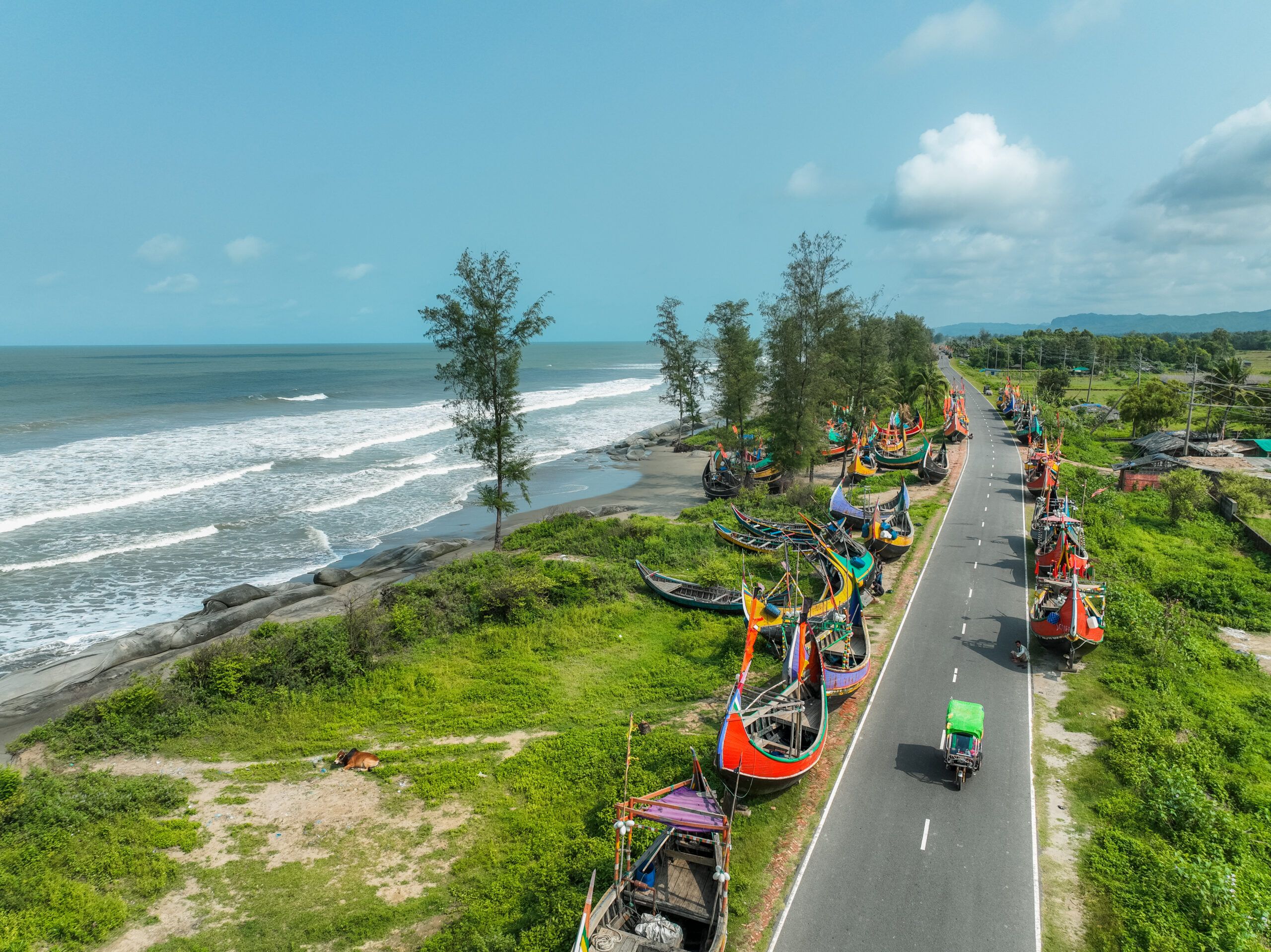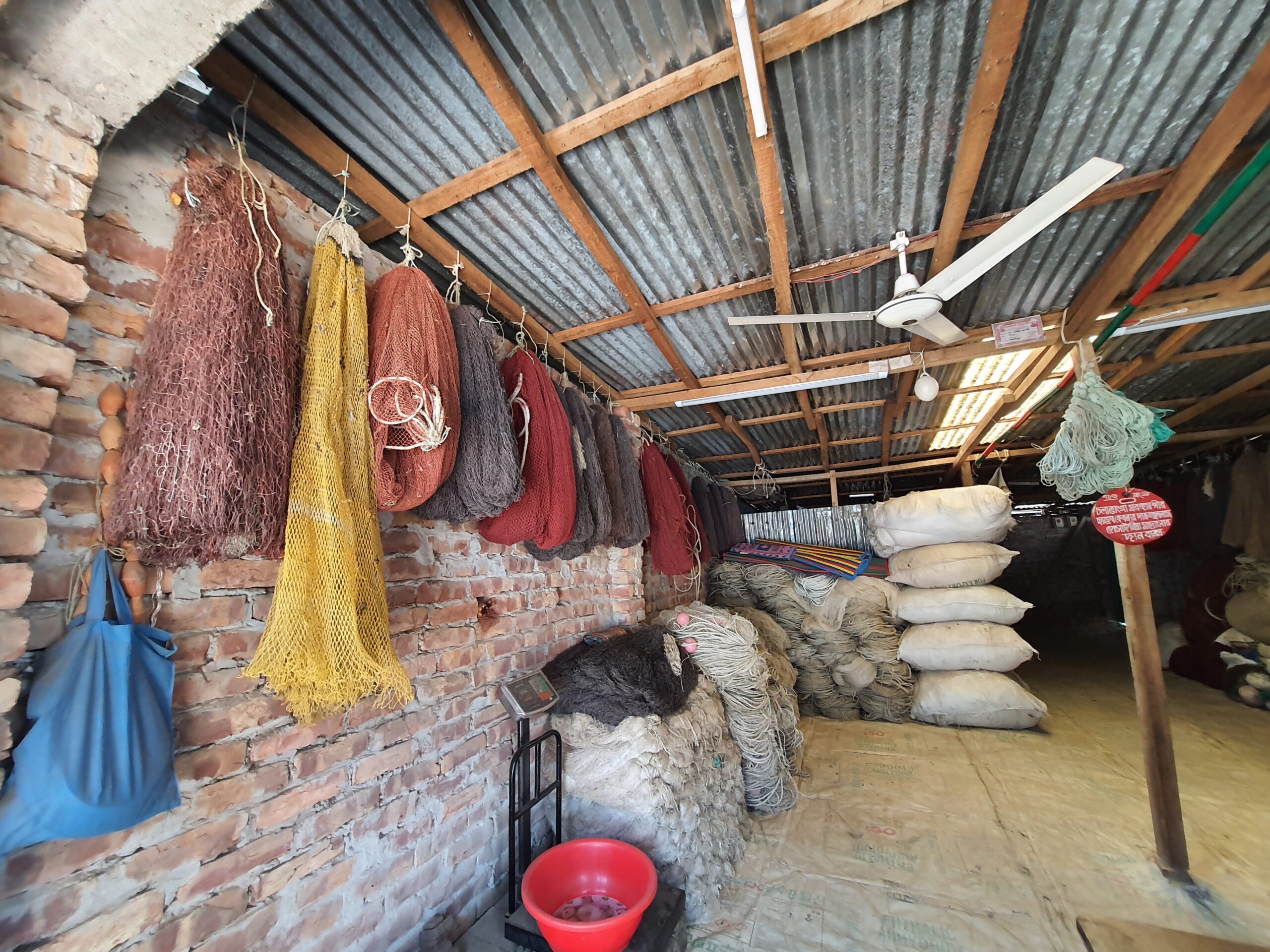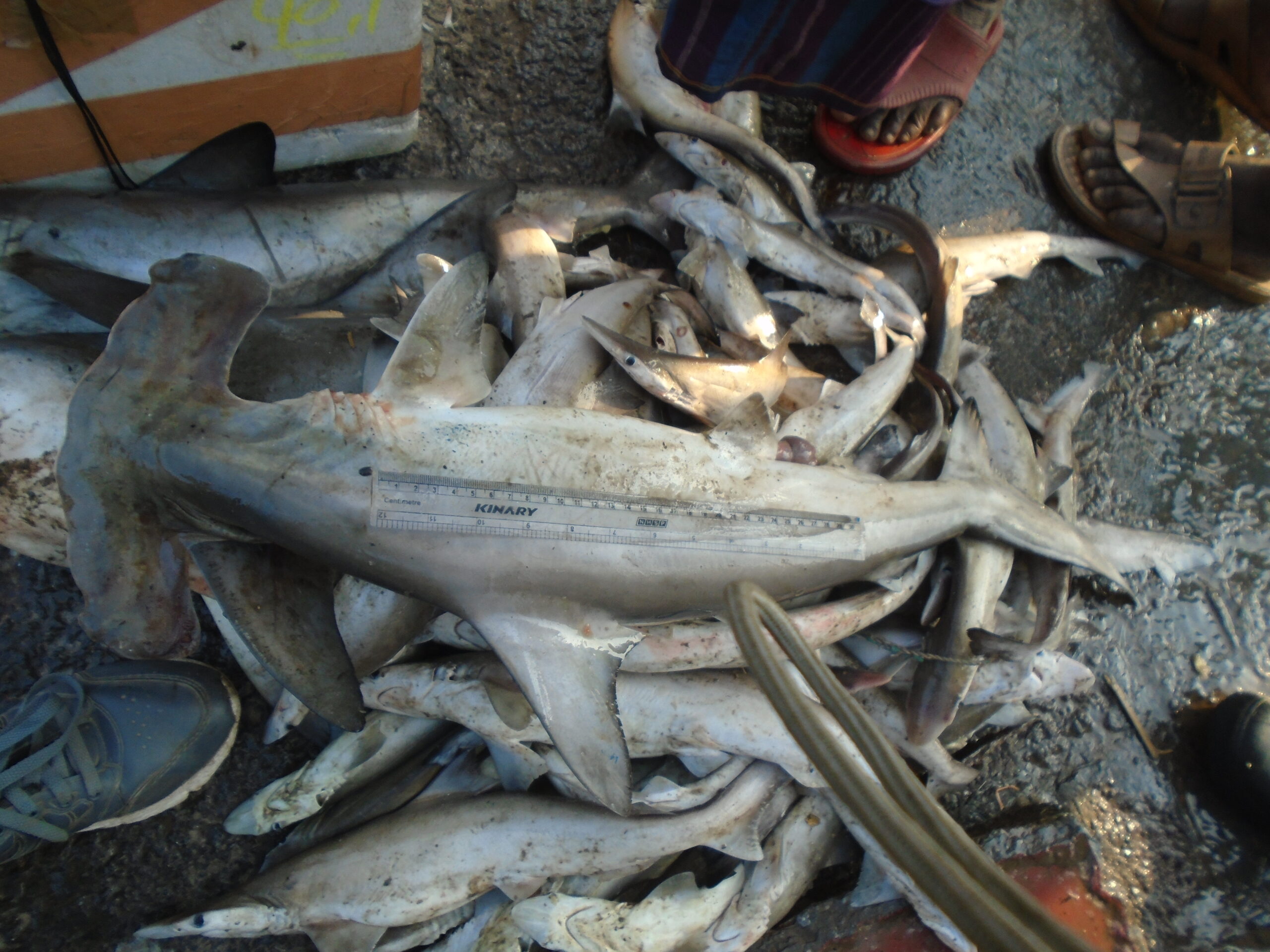Unintended Victims: Exploring Hammerhead Bycatch
In the coastal waters of Bangladesh, where the Bay of Bengal meets the land, a delicate balance exists between livelihood and conservation. With a coastline stretching over 710 kilometers and abundant marine resources, Bangladesh is both blessed and burdened by the riches of its waters.
The marine biodiversity of Bangladesh is staggering, boasting nearly 800 recorded fish species, including five species of majestic hammerhead sharks. Yet, amid this natural bounty, a looming threat persists – the unsustainable fishing practices that endanger not only the hammerheads, but also the delicate marine ecosystem as a whole.

The mighty coast of Bangladesh, Cox’s Bazar, Marine Drive. © Fayed Khan
In the quest to understand and mitigate this threat, we delve into the heart of coastal communities, evaluating the demographic structure and fishing practices that shape their livelihoods. What emerges is a complex tapestry of dependence and conflict, where small-scale fisheries clash with large-scale operations, exerting immense pressure on vulnerable species like the Hammerhead Sharks.

A local fishing gear shop in one of the coastal regions of Bangladesh. © Nazia Hossain
Despite efforts to conserve these magnificent creatures, challenges abound. Hammerhead Sharks, listed in various conservation agreements like CITES, and IUCN Red List and protected under Bangladesh’s Wildlife Act, 2012, continue to face extreme encounters with fishing gear designed for other species. The lucrative trade in shark products, particularly fins and skins, fuels demand both domestically and internationally, further exacerbating the plight of these endangered creatures.

Hammerhead sharks along with other sharks from bycatch. © Nazia Hossain
As the demand for shark products rises, so too does the urgency to address the issue of bycatch. In Bangladesh, where the fishing industry contributes significantly to the economy, finding a balance between economic interests and conservation imperatives is paramount.
In the face of these challenges, we are trying to raise awareness, advocate for sustainable fishing practices, and safeguard the future of Hammerhead Sharks and their marine brethren. By understanding the intricate dynamics of bycatch and its impact on coastal communities and ecosystems, we are trying to pave the way for informed decision-making and meaningful conservation action.
